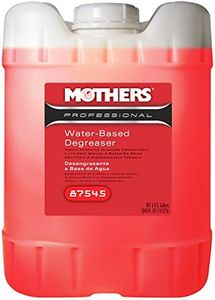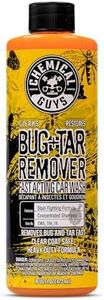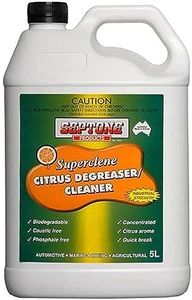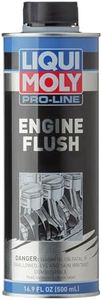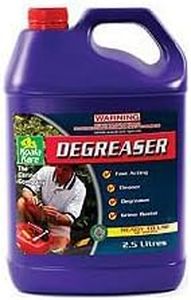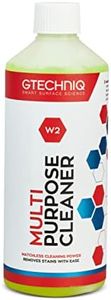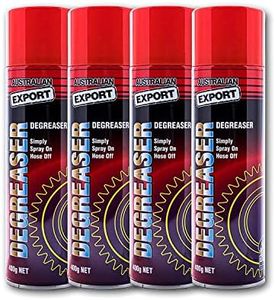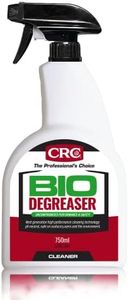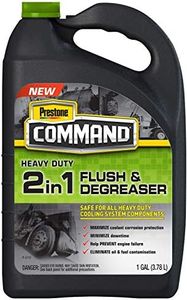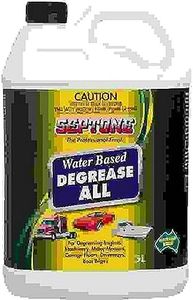We Use CookiesWe use cookies to enhance the security, performance,
functionality and for analytical and promotional activities. By continuing to browse this site you
are agreeing to our privacy policy
10 Best Engine Degreasers
From leading brands and best sellers available on the web.By clicking on a link to a third party's website, log data is shared with that third party.
Buying Guide for the Best Engine Degreasers
Choosing the right engine degreaser can make cleaning and maintaining your vehicle's engine much easier and more effective. There are many products available, each with different strengths and features, so understanding the important qualities will help you select the best one for your needs. Begin by thinking about the type of grime you're dealing with, your sensitivity to chemicals, and whether you'll be working indoors or outdoors.Type of Degreaser (Solvent-based vs. Water-based)The type of engine degreaser refers to the chemical base—either solvent-based or water-based. Solvent-based degreasers are usually stronger, designed to tackle heavy buildup and greasy residues, and tend to work faster. Water-based options, on the other hand, are generally less harsh, more environmentally friendly, and easier on your skin and surrounding surfaces. If you frequently deal with extreme oil and grease, a solvent-based product may be preferable. For lighter cleaning or more frequent use, a milder water-based degreaser is usually enough.
Cleaning StrengthCleaning strength describes how effectively the degreaser can break down and remove stubborn dirt, oil, and grime. Stronger solutions are better for engines with years of neglect or thick, baked-on residues, while milder options are well suited for ongoing maintenance and gentler cleaning. Look for products described as 'heavy-duty' if you're tackling stubborn messes, or 'mild'/'maintenance cleaner' for regular, lighter jobs. Think about the condition of your engine and let that guide your decision.
RinsabilityRinsability refers to how easily you can wash away the degreaser after it has done its job. Some products require heavy rinsing with a water hose, while others can simply be wiped off or need less water. If you have easy access to outdoor space and a water source, rinsing is usually not an issue. For indoor use, or if you want a less messy experience, look for formulas that can be wiped off or are labeled 'no-rinse.' Always consider your cleaning environment when weighing this feature.
Material CompatibilityMaterial compatibility is all about ensuring that the degreaser is safe for the surfaces you plan to clean. Some formulas may contain harsh chemicals that could damage rubber, plastics, or painted parts under the hood. Check the product details for mention of safety on specific materials, and if you're uncertain, choose a formula that is labeled as 'safe for all engine parts' or 'non-corrosive.' If your engine has more plastic or delicate components, always favor gentler, tested products.
Scent and Fume LevelThe scent and level of fumes can vary widely. Some degreasers give off strong, chemical odors that can linger or be unpleasant during use, while others are either unscented or have milder fragrances. If you're sensitive to smells or will be working in a less ventilated area, seek out low-odor or no-odor formulas. For open-air use, scent may be less of a concern, but personal comfort and safety should still be considered.
Environmental FriendlinessEnvironmental friendliness refers to how safe the degreaser is for the environment when washed away. Water-based degreasers often have a lower environmental impact, while some strong solvents may be harmful to plants, animals, or waterways. If you prefer eco-friendly cleaning (especially for outdoor rinsing), look for products labeled as biodegradable, non-toxic, or environmentally safe. Your value on sustainability and your local regulations regarding chemical runoff can guide your selection here.
